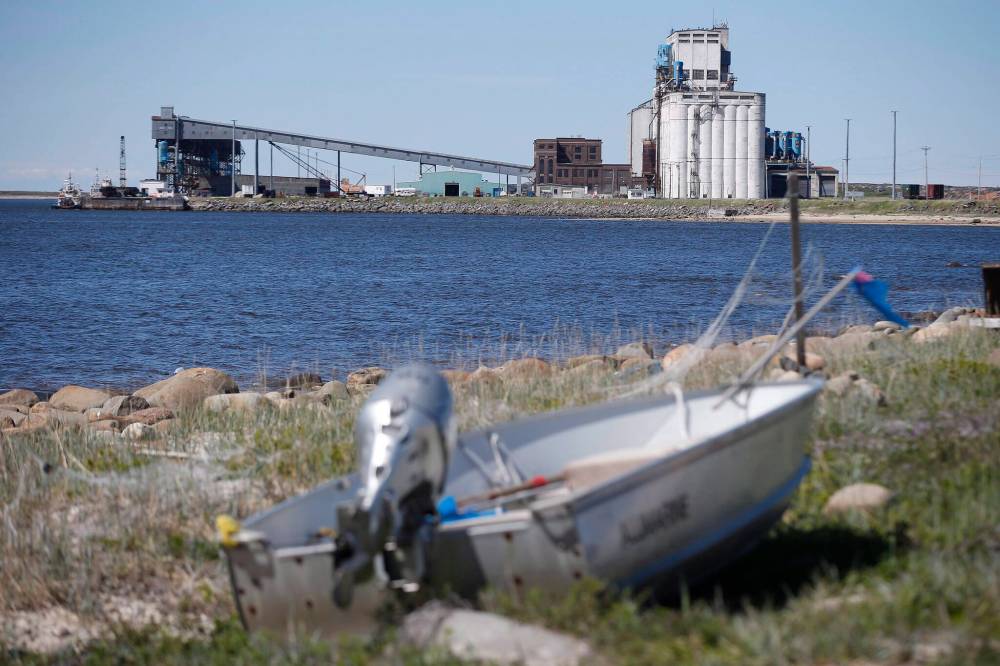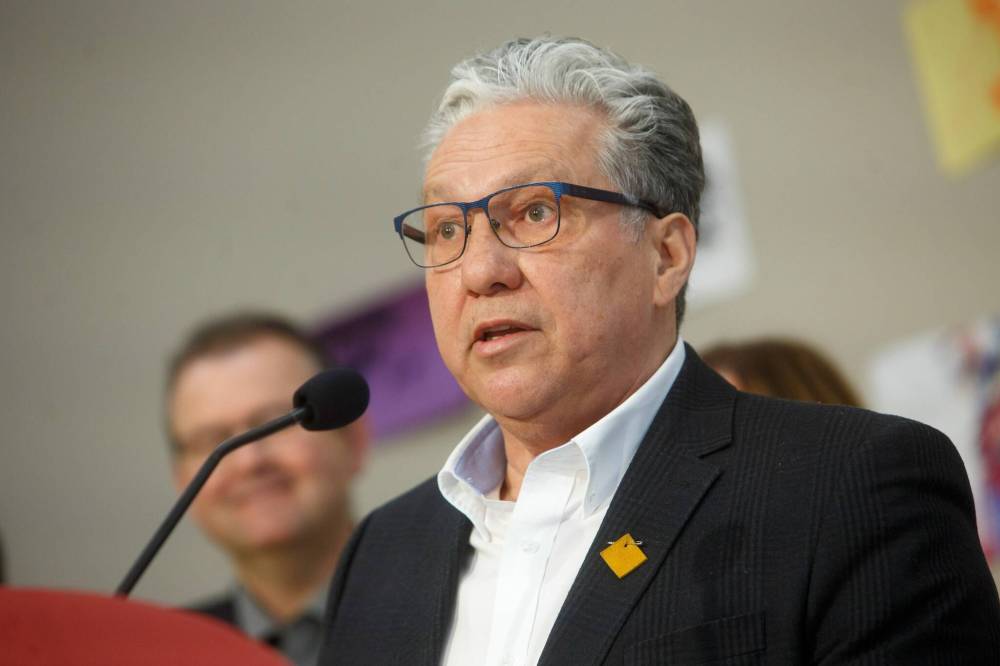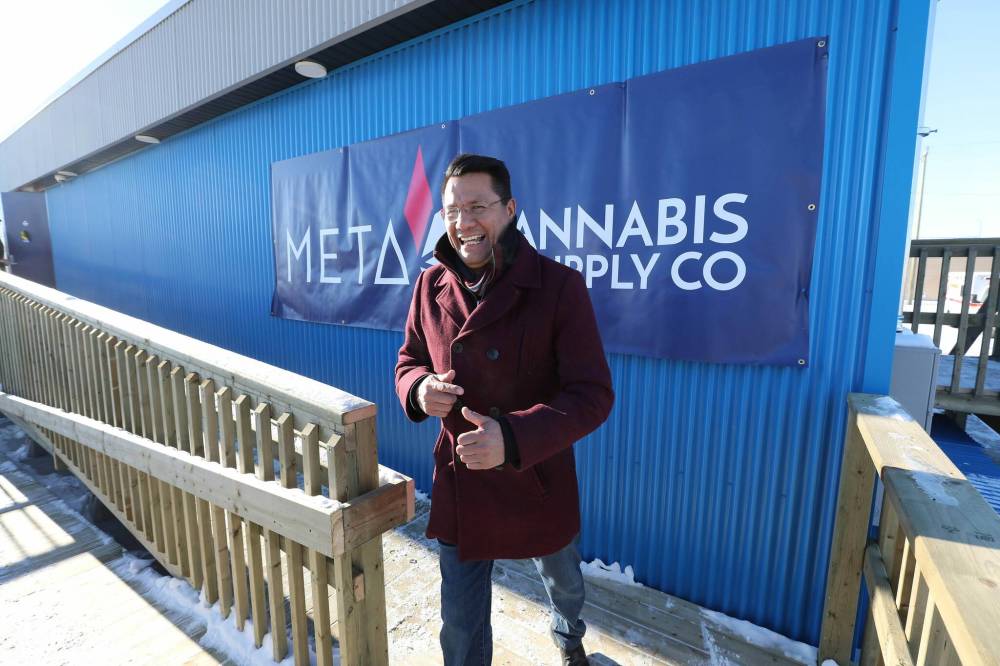Funding will help Indigenous communities take part in mineral exploration
Advertisement
Read this article for free:
or
Already have an account? Log in here »
To continue reading, please subscribe:
Monthly Digital Subscription
$0 for the first 4 weeks*
- Enjoy unlimited reading on winnipegfreepress.com
- Read the E-Edition, our digital replica newspaper
- Access News Break, our award-winning app
- Play interactive puzzles
*No charge for 4 weeks then price increases to the regular rate of $19.95 plus GST every four weeks. Offer available to new and qualified returning subscribers only. Cancel any time.
Monthly Digital Subscription
$4.99/week*
- Enjoy unlimited reading on winnipegfreepress.com
- Read the E-Edition, our digital replica newspaper
- Access News Break, our award-winning app
- Play interactive puzzles
*Billed as $19.95 plus GST every four weeks. Cancel any time.
To continue reading, please subscribe:
Add Free Press access to your Brandon Sun subscription for only an additional
$1 for the first 4 weeks*
*Your next subscription payment will increase by $1.00 and you will be charged $16.99 plus GST for four weeks. After four weeks, your payment will increase to $23.99 plus GST every four weeks.
Read unlimited articles for free today:
or
Already have an account? Log in here »
Hey there, time traveller!
This article was published 17/05/2023 (972 days ago), so information in it may no longer be current.
The Canadian and Manitoba governments continue to show they mean business when it comes to critical minerals development.
According to a $3.75-million funding announcement in Churchill on Tuesday during a meeting of provincial Northern Affairs ministers, that means providing meaningful support for Indigenous communities in Northern Manitoba to be better able to participate in mineral exploration and development to whatever extent they choose.
A new Strategic Partnerships Initiative with Indigenous Services Canada, to be delivered by PrairiesCan called the Manitoba Indigenous Critical Minerals Partnerships Initiative (MICMPI), is to target three key areas — workforce development and job training, capacity building so that Indigenous communities have the tools to make better decisions about their relative involvement in mineral projects in their territories, and business development and entrepreneurship related to minerals development.

A $3.75-million funding announcement was made in Churchill on Tuesday during a meeting of provincial Northern Affairs ministers to provide support for Indigenous communities to be better able to participate in mineral exploration. (John Woods / The Canadian Press files)
There seems to a general consensus that there’s urgency to the matter.
Last year, the federal government came out with a critical minerals strategy earmarking about $4 billion to support the industry, with tens of millions of dollars specifically for the North and the province of Manitoba is in the process of developing its own mining strategy.
Winnipeg MP Dan Vandal, minister for PrairiesCan, said, “The North is going to become more important as time wears on because of climate change, the geopolitical realities of the world these days and the importance of critical mineral development.”
Geologists believe that nine of the 31 critical minerals on the federal government’s priority list can be found in Northern Manitoba.
Industry sources believe that both the Canadian and Manitoba governments are in sync regarding the urgency in this sector and believe there is momentum underway.
And since it is the law of the land that First Nations need to be included, industry is now fully supportive of figuring out ways to better engage with those communities.
“We know that prosperity works best when Indigenous governments are at the table from the very beginning,” said Vandal. “That is non-negotiable. They have to benefit from the investments. In many cases, they should be equity owners of the projects coming forward.”
On Tuesday, an exploration company called 55 North Mining Inc. signed an exploration agreement with Marcel Colomb First Nation for a gold exploration project near Lynn Lake.

“We know that prosperity works best when Indigenous governments are at the table from the very beginning,” said MP Dan Vandal responsible for PrairiesCan. (Mike Deal / Winnipeg Free Press files)
Last year, Marcel Colomb also announced a series of potential industry partnerships related to the development of gold mine in Lynn Lake being developed by Alamos Gold, a project that may very well become the next new mine in the province.
Christian Sinclair, the former chief of Opaskwayak Cree Nation, advised the Marcel Colomb band on both projects. He has also been working with PrairiesCan, doing fact finding to get information from First Nations with potential mining interests.
“They had a target list of a number of First Nations that I have already engaged to get their feedback on what they would need to be successful in their initial dialogue with industry and government and to figure out what resources would be required to get to them to a better position.”
Sinclair suggests funding from the MICMPI would go towards things like hiring legal and technical advisers, resources to be able to work with the provincial mining branch and natural resources and any travel that might be necessary.
Sinclair said it’s not a matter of whether or not communities want to be involved in the mineral exploration and mining industries. He said the question is, what they would need in order to better understand mining and to succeed if a mining project were to be developed in their territory.
“There are many things that factor into the equation especially the environment, which is more important than economic development in the initial stages,” he said. “Everyone wants to see economic development but not at any cost.”
The legal requirement to involve First Nations in developments in their territories is no longer a question or a subject for debate, so the better First Nation communities are able to engage in those discussions, the better it is for industry.

Opaskwayak Cree Nation (OCN) chief Christian Sinclair suggests funding from the MICMPI would go towards things like hiring legal and technical advisers, resources to be able to work with the provincial mining branch and natural resources and any travel that might be necessary. (Ruth Bonneville / Winnipeg Free Press files)
John Morris, the executive director of the Mining Association of Manitoba said, “We definitely appreciate investment in building capacity within First Nations and Indigenous communities to engage in industry opportunities. We see it as a supportive step. Any investment that will lead to potential mineral development in Canada is a good thing.”
Chuck Davidson, the CEO of the Manitoba Chambers of Commerce, has been working on the Northern development file for many years, including managing the province’s Manitoba Mineral Development Fund.
“We see this (the MICMPI) melding nicely with the Mineral Development Fund,” he said. “Anything that can try to help, not necessarily fast-track, but move projects along more quickly and get more information into the hands of First Nations when they are making decisions is great.”
martin.cash@freepress.mb.ca
History
Updated on Wednesday, May 17, 2023 8:08 AM CDT: Corrects spelling of Opaskwayak Cree Nation


